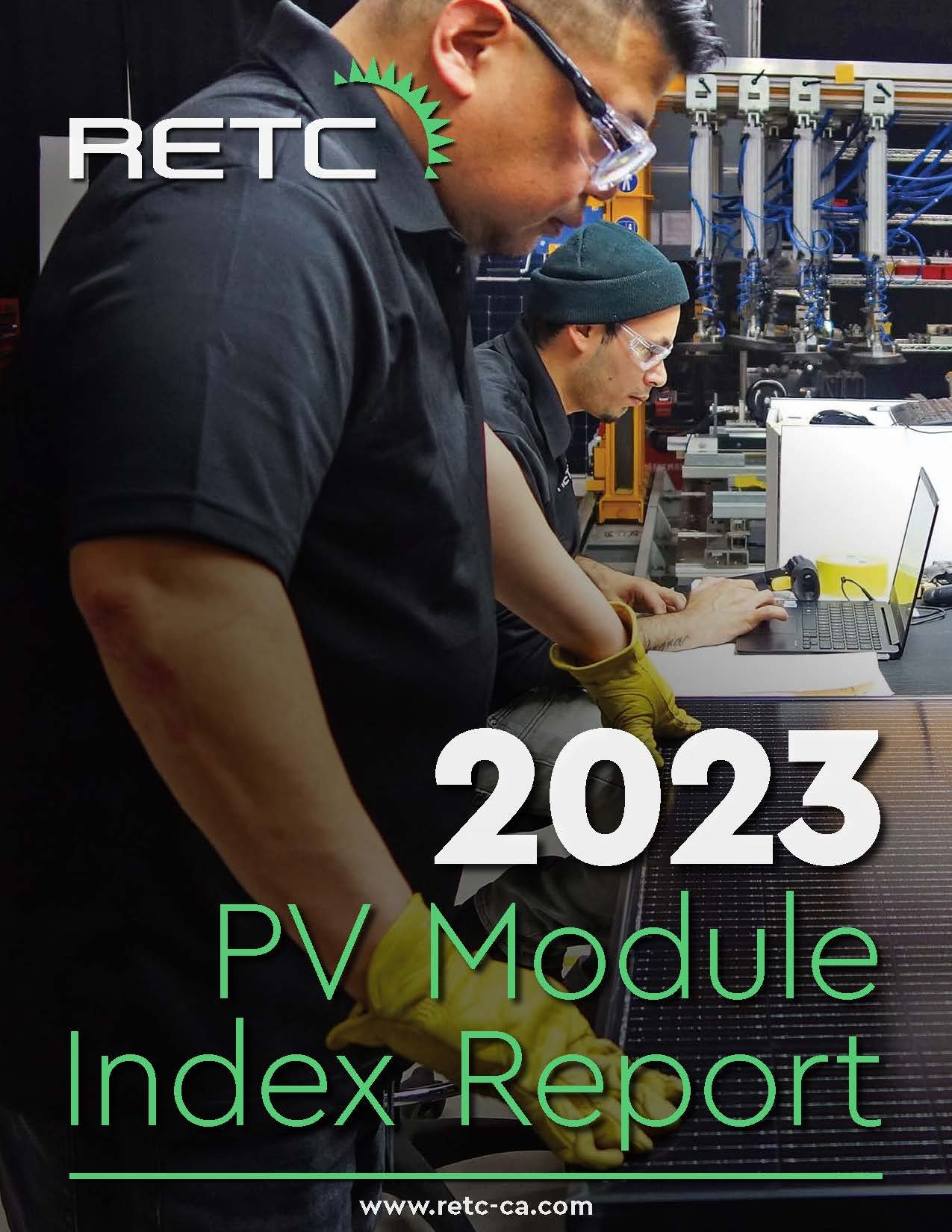Congratulations to 2023 PVMI Awardees
Throughout the 2023 edition of the PV Module Index Report, RETC has recognized 19 different manufacturers and showcased 78 instances of high achievement.
RETC congratulates and proudly recognizes, in alphabetical order, eight manufacturers with products recognized for high achievement in manufacturing across three essential disciplines—quality, performance, and reliability—in the 2023 edition of the PV Module Index (PVMI) Report:
Note that this summary analysis of high achievement in manufacturing is based on available data. Manufacturers and products that are not recognized as overall highest achievers may still prove durable and provide excellent performance. RETC simply cannot make an overall determination regarding high achievement in manufacturing without module test data across all three categories.
To identify the best of the best, we reviewed and ranked the overall data distributions across all three disciplines: quality, performance, and reliability. The Overall Results Matrix, included below, summarizes the results of this analysis, which highlights eight high achievers based on overall highest achievement in manufacturing.
ABOUT RETC AND ITS PV MODULE INDEX REPORT
RETC is a leading engineering services and certification testing provider for renewable energy products with its headquarters in Fremont, California. Since its founding in 2009, RETC has partnered with manufacturers, developers, and investors to test a wide range of products including modules, inverters, battery energy storage, and racking systems. As a member of the VDE Group, RETC is helping to provide customers worldwide with a one-stop shop for testing, inspection, certification, and data services that de-risk renewable energy projects. At RETC, we are united in the belief that our work enables a safer and more sustainable world.
The 2023 edition of the PV Module Index Report compiles the results of bankability and beyond-qualification tests conducted at RETC’s accredited laboratories over 12 months, spanning Q2 2022 through Q1 2023. Project stakeholders can use these comparative test results to identify products or project designs best suited to a particular environment, location, or portfolio. Entities looking to procure high-performing products within a certain category or sequence can request RETC’s test report from the manufacturer.
When reviewing the results compiled in this report, recall that the goal of comparative testing is not to disparage or favor specific technologies, products, or manufacturers. Project development is rarely suited to a solar-as-a-commodity approach. Successful solar project deployment demands differentiated products and design approaches. These strategic design adaptations ensure that fielded projects can withstand site-specific risks while optimizing investor returns.
Intelligent project design eschews oversimplified pass-fail models in favor of sophisticated comparative analyses. Products that perform well in tests that simulate high wind speeds may not perform well in tests that simulate high humidity. PV module designs resilient to severe hail or snow may not be cost-effective in large utility-scale applications in California’s Central Valley, which rarely experiences these perils.
The goal of a data-driven approach to project development is not to eliminate every risk at any cost but rather to balance risk mitigation based on a holistic cost-benefit analysis. The bankability testing that underlies this report is foundational to these science- and engineering-based approaches to technical risk mitigation.





